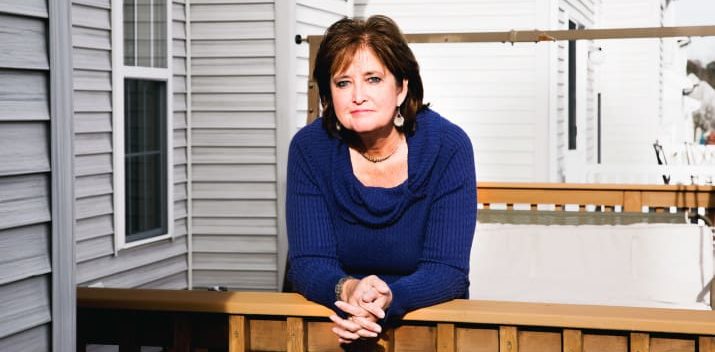Warning: This article contains language that references sexual assault and may be triggering for some readers.
The United States State Department estimates that two million women and children are victims of human trafficking every year.1 Human trafficking is modern-day slavery and involves the use of force, fraud, or coercion to exploit victims. This exploitation takes many forms but most often occurs when victims are forced to perform labor-intensive tasks or engage in sex acts.2
Many victims of human trafficking – in both labor and sex trafficking – are subjected to sexual violence as a way for the trafficker to exert power over the victim and to instill fear.3 The majority of victims of sex trafficking are women and girls, although men and boys can also be exploited.4 Human trafficking is a worldwide epidemic generating an estimated $150 billion every year5 – second only to drug trafficking as the fastest growing crime in the world.6

Alpha Sigma Tau alumna Susan Ingram, Beta Epsilon, is dedicated to bringing an end to human trafficking. She became an advocate for ending human trafficking by raising funds for safe houses for victims and working on the set of a documentary film about human trafficking. In 2015, the cause became more personal when Susan was sexually assaulted. Her assault served as a catalyst for her, in her words, “to do more than just talk about protecting women.” Susan was then inspired to create Walk Her Home, her own non-profit organization to combat human trafficking. Walk Her Home creates awareness and raises funds for organizations that provide support for victims of human trafficking in the United States.
Because human trafficking is often misunderstood, raising awareness is vital. The first misconception, Susan explains, is that human trafficking occurs like the plot of the movie Taken, where a woman is kidnapped off the street. Although force is sometimes used to initially trap a victim, traffickers more often use fraud and coercion in order to gain and maintain control over their victims.7 The second misconception is that trafficking victims are from other countries who are sent to the United States. Susan states that although these instances may occur, they are not reflective of the majority of cases of human trafficking. In fact, victims in the United States are frequently U.S. citizens who have been lied to and manipulated to give their trust. Susan emphasizes that human trafficking can happen “in any community where a trafficker is looking to get access to kids.”
“We have a long way to go and we’re fighting a big battle,” Susan says. “That is why it is so important that everyone takes their small part and does something.” One of the ways that you can get involved is knowing the signs someone might be a trafficking victim. Signs include: a young girl traveling alone with a much older man, not speaking for herself, looking scared, crying, and being in an area of movement (like an airport, train station, or subway stop). If you see someone who you think might be a victim of trafficking, call your local law enforcement to let them know. When you call, be prepared with identifying information about the potential victim and trafficker such as hair color, eye color, height, clothing, and approximate age as well as any other information you may have.
Another way you can get involved is by engaging with anti-trafficking initiatives in your area. Susan shares, “There’s always going to be some resource, whether it’s doing volunteer work, getting involved in initiatives, or getting involved with raising awareness. There is a lot going on in just about every state.” If you want to get involved, she suggests first heading to Google to find anti-trafficking organizations in your area. You can also reach out to your local District Attorney for potential suggestions of organizations that are preventing trafficking and supporting survivors.
Susan encourages sorority members to raise awareness about human trafficking and get involved in anti-trafficking initiatives in their communities while still in college: “In college, you start to formulate issues important to you. The bonds of Sisterhood help to solidify this desire as a woman to care, protect, respect, and find justice for other women.”
To learn more about Walk Her Home, please visit walkherhome.org.

1 https://www.unodc.org/unodc/en/human-trafficking/what-is-human-trafficking.html
2 https://humantraffickinghotline.org/type-trafficking/human-trafficking
3 https://www.nsvrc.org/sites/default/files/2012-10/publications_nsvrc_guides_human-trafficking-victim-advocates.pdf
4 https://www.nsvrc.org/sites/default/files/2012-10/publications_nsvrc_guides_human-trafficking-victim-advocates.pdf
5 https://www.purchased.org/awareness-and-advocacy
6 https://walkherhome.org/about-us/facts-statistics
7 https://www.acf.hhs.gov/otip/resource/fshumantraffickingParagraph
Header photo credit: Jillian Guyette, BuzzFeed News
